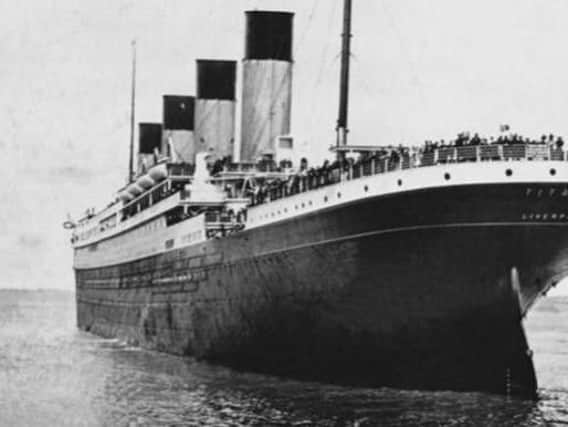Villagers in Northamptonshire 'may have been the first to hear of Titanic in trouble'


The infamous tragedy at sea that claimed 1,500 lives in 1912 could well have first been reported in Bugbrooke by a headmaster up late at night listening to his personal radio equipment.
And following a documentary by Channel 4 that called the Titanic 'iceberg' theory into question, it appears Frank Wright, headmaster at Bugbrooke School, could have known the truth about the sunken ocean liner before anyone.
Advertisement
Hide AdAdvertisement
Hide Ad"It's something of a local legend," said Pat Clark, a local historian. "But it's well known to the people of Bugbrooke how Mr Wright ran through the village on the night of the 14th of April 1912 shouting that the Titanic had sunk. No-one believed him, until the newspapers were delivered.
"Frank was one of the first people to know in Europe. The event has passed out of living memory now, so whether Mr Wright knew the true events of the disaster is a mystery."
The recent Channel 4 documentary, 'Titanic: The New Evidence,' theorizes that the luxury cruise ship was not sunk by an iceberg but instead was brought down by a coal fire in an engine room chimney.
Stan Clark, a Bugbrooke man whose father was taught by Mr Wright, said: "My family and I have known for years it wasn't an iceberg, but no one believed us.
Advertisement
Hide AdAdvertisement
Hide Ad"Mr Wright heard firsthand reports that there was a fire aboard the Titanic when he picked up their S.O.S signal on his radio equipment. He ran down the street shouting about the disaster. Bugbrooke was amongst the first to know about the tragedy."
Frank Wright's affection for technology benefitted many Bugbrooke children over the years.
Mr Clark said: "He was a brilliant man who taught children in the village how to use radios and Morse code to children.he was well loved and respected by everyone. He and his pupils were in constant touch with people in France and even Germany, which was unheard of in those days. I like to think we were very lucky to have had such a man in our midst in times gone by."